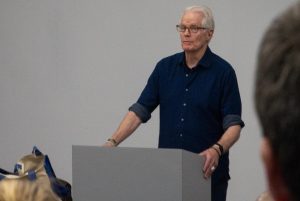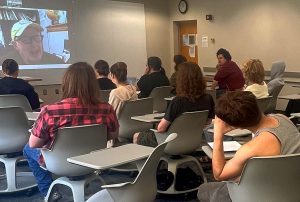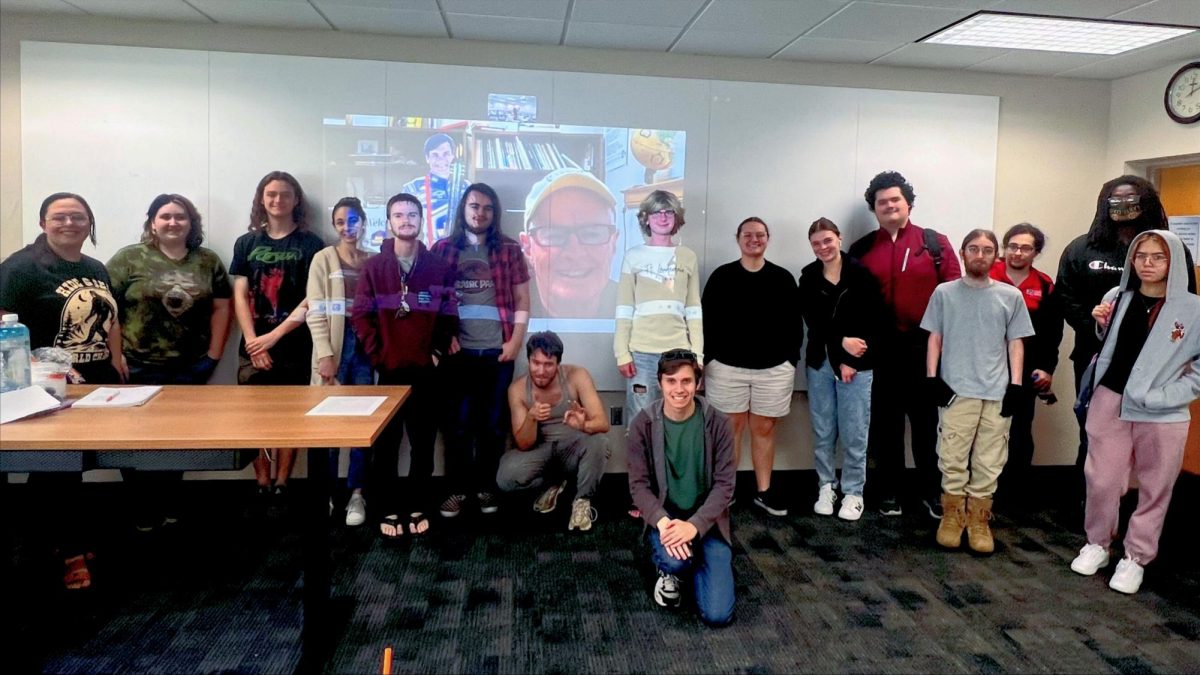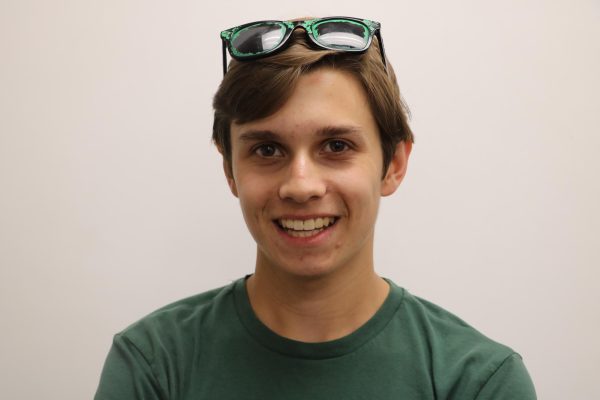In 2016, Florida Humanities awarded a Lifetime Achievement Award to a renowned author, David Kirby. He was referred by them as a “ literary treasure of our state”.
Kirby’s work primarily consists of poems and essays, which he’s included in his 30 books. He’s made significant contributions to academics, currently presiding as the Robert O. Lawton Distinguished Professor of English at Florida State University (FSU). For both his creations and his teaching career, he’s earned several accolades in addition to the award from Florida Humanities. He’s also been invited to speak at the College of Central Florida (CF) Ocala Campus on multiple occasions.
With such a celebrated career, one may wonder what the secret to Kirby’s success is; It all boils down to his sense of personal engagement and his forward-thinking mindset.
Kirby’s story began not in Florida, but on a farm in South Louisiana. Despite this rural upbringing, he was well-off academically thanks to his parents. His father was a college professor while his mother was an elementary school teacher. Kirby believes he started writing in an attempt to gain their attention.
“I was a second child and I had an older brother,” said Kirby on the matter, “I wanted to kind of [hustle] to the head of the line. So, I kind of wrote little ‘people pleasers’ for them. I didn’t know that I was doing the right thing at the time, but I would describe them in the poems. And if there’s a way into the poem, the reader will engage.”
Deeply engaging with readers has remained essential to Kirby’s writing philosophy. In a 2007 interview with Craig Teicher, he said, “One thing that I want to do in the poems is to portray the mind as it actually works.” When asked later to elaborate on what this meant, Kirby said, “The idea is that I want to start hand-in-hand with the reader and go through the thinking process, rather than think a big thought and come to a conclusion and write and print the conclusion. Because when you see that, you have to figure out the preliminary steps yourself. But if I can introduce something that puzzles me and it puzzles you to say let’s figure this out together, then it’s a mutual process.” [sic]
When asked if he had a favorite work he’d authored, Kirby responded simply , “Yeah, the one I’m gonna write next week.” He stated that he “doesn’t dwell” on past works, focusing instead on the new ideas that come to him each day. He likened this to film actors who choose not to watch the projects they’ve starred in. It’s a creative philosophy that encapsulates his everyday life .
It was 1969 when Kirby began teaching at FSU, a position he’s held for 55 years now. Kirby joked that the only other person who’s had a job for that long was Lorne Micheals, the producer of the sketch-comedy series, “Saturday Night Live”.
“I could have retired, oh gosh, 25 years ago, but I just keep getting new ideas,” Kirby stated when speaking on his tenure at FSU. In his own words, it’s the “day-to-day contact with smart, young people” that keeps him going. He thrives on his work there so much that he jokingly whispered, “It’s not really a job, it’s the perfect crime!”
This enthusiasm has left an impact on the students he’s taught. In a 2004 article from FSU, student, Chantalle Couba, recalled, “[Kirby] pulled me aside and said, ‘Please come to my class; it makes a difference when you’re here.’ In a school with 30,000 people, it really matters when a professor does that. He genuinely made me feel like he cared.”
In addition to his work at FSU, Kirby has inspired the students of CF with his words. This past February, he hosted a seminar and book signing for the college’s own Debra Vasquez Memorial Poetry Series.

Earlier this month, he additionally served as a guest speaker for Professor Jong Ash’s Creative Writing 1 and 2 classes.

While David Kirby is primarily known for his work as an author, his legacy will extend far beyond that. Through his engagement with readers and students alike, he’s touched thousands, if not, millions of lives for the better. With such a forward, positive mindset, some would say there are few better qualified to serve as a role model for the next generation of writers.




